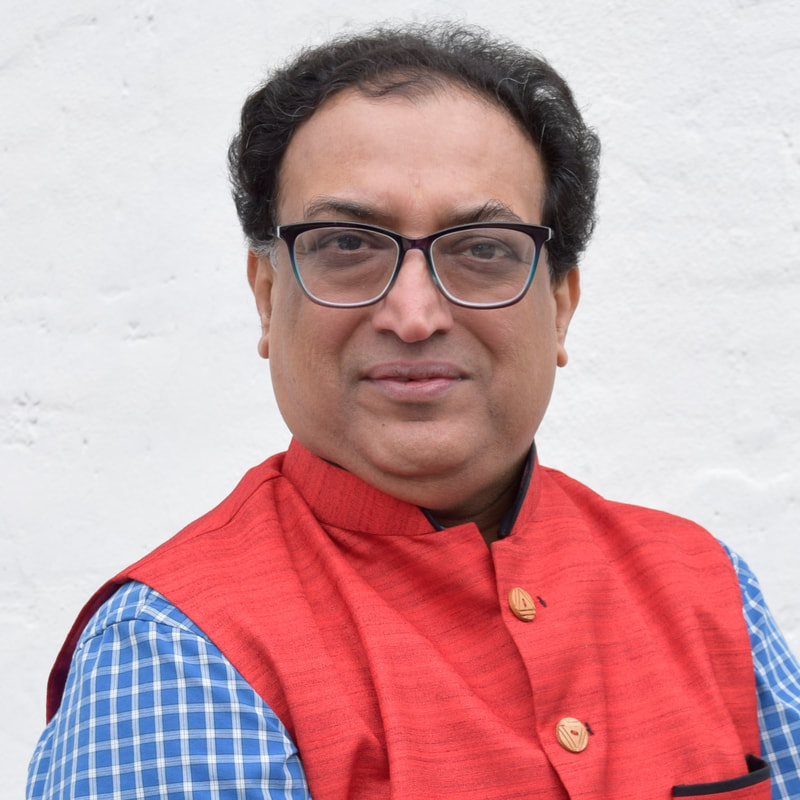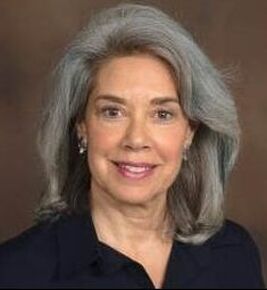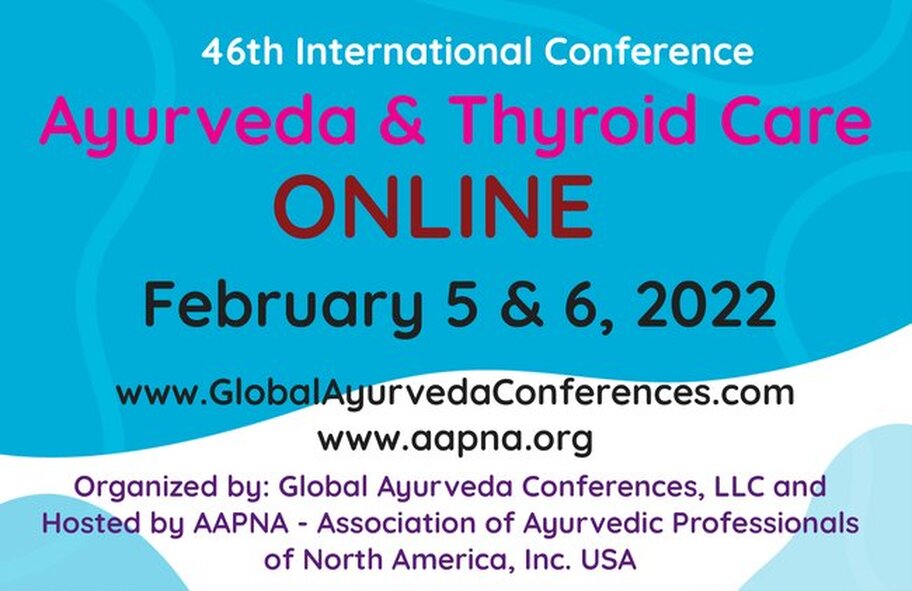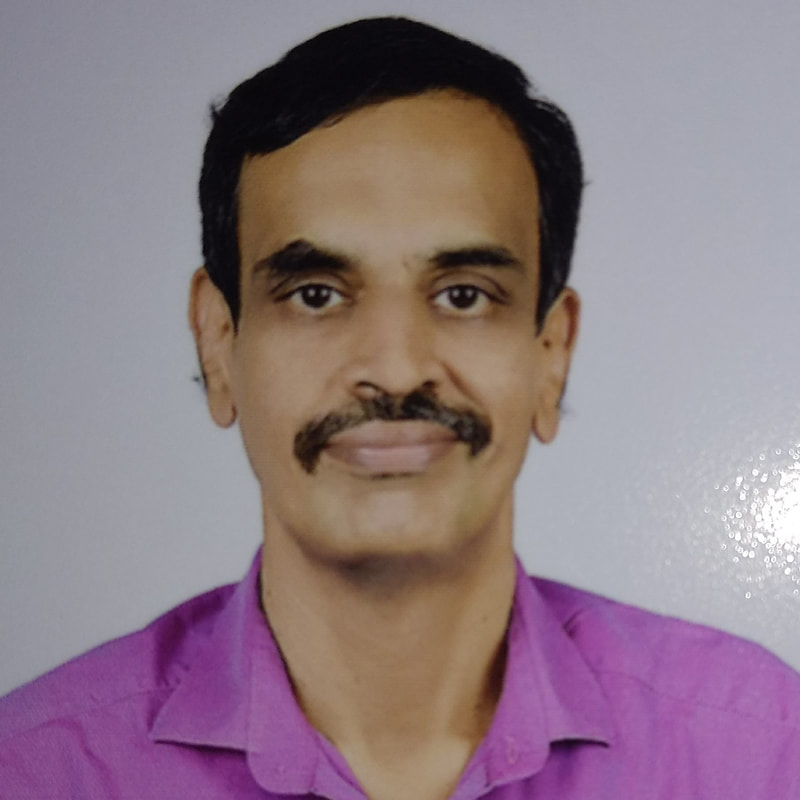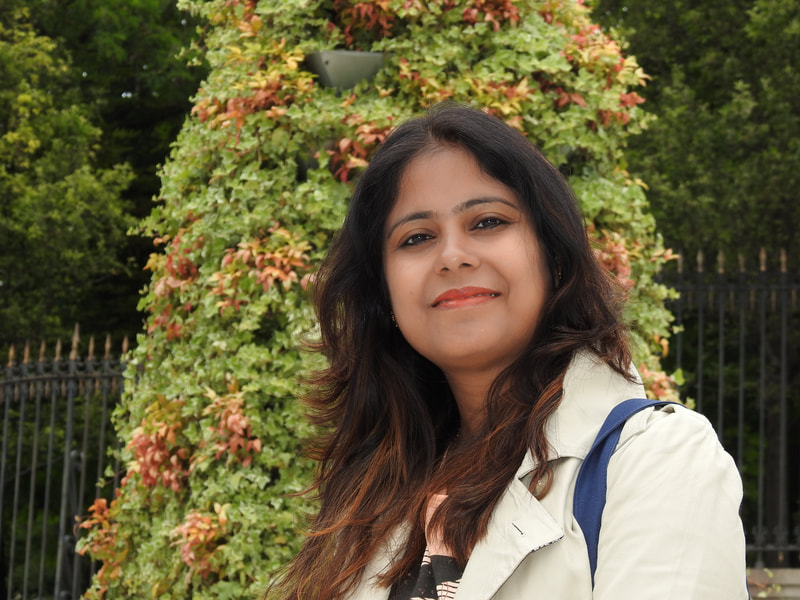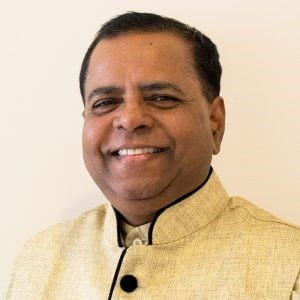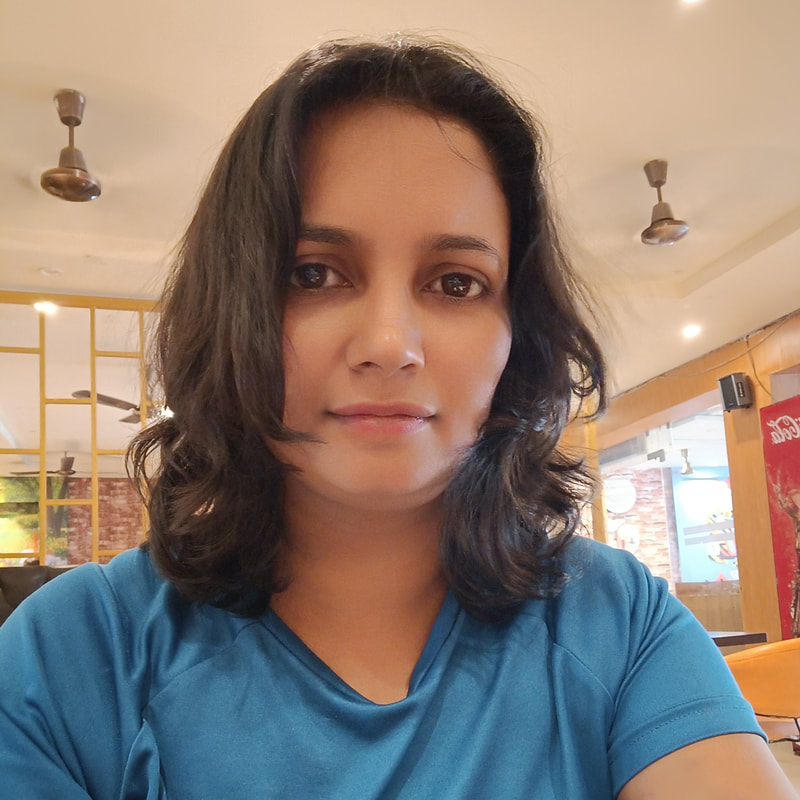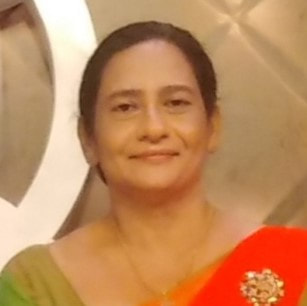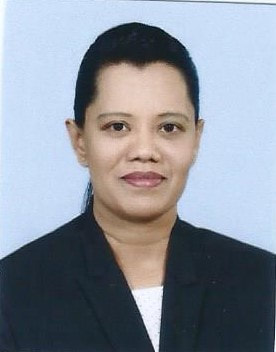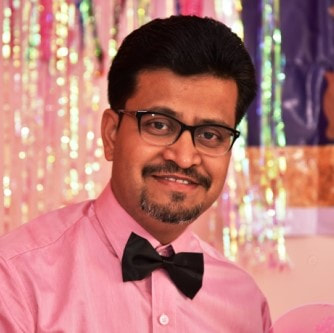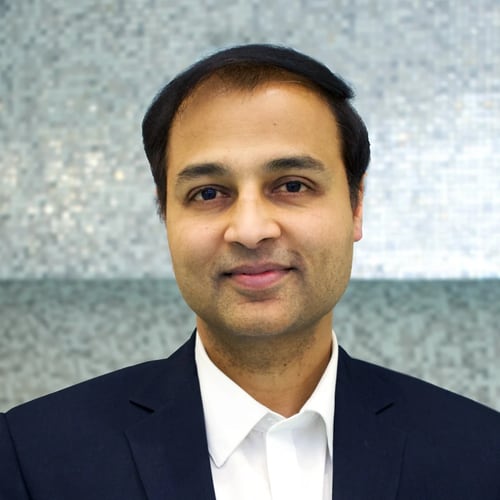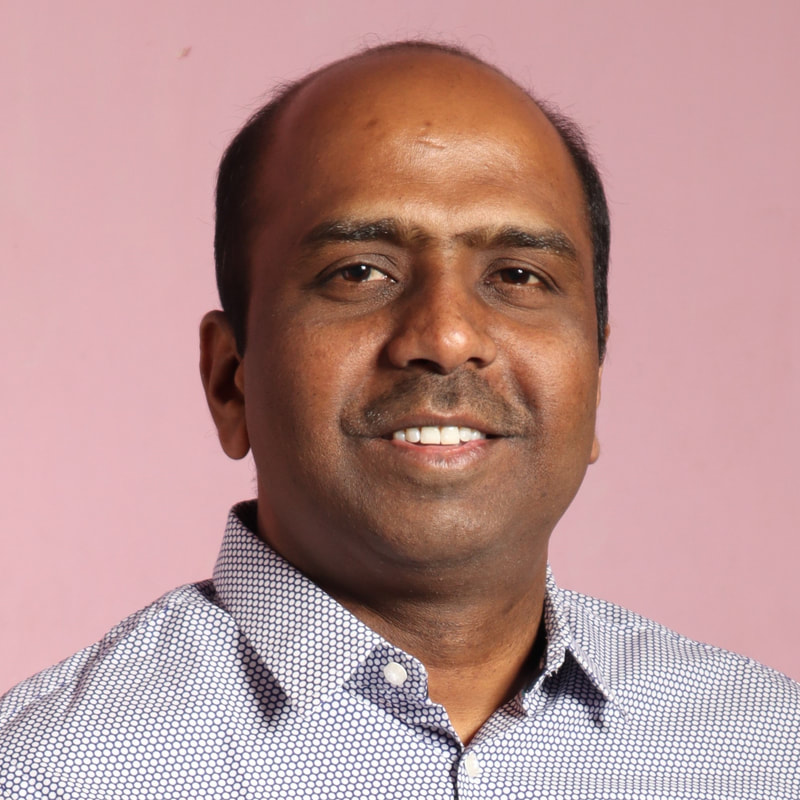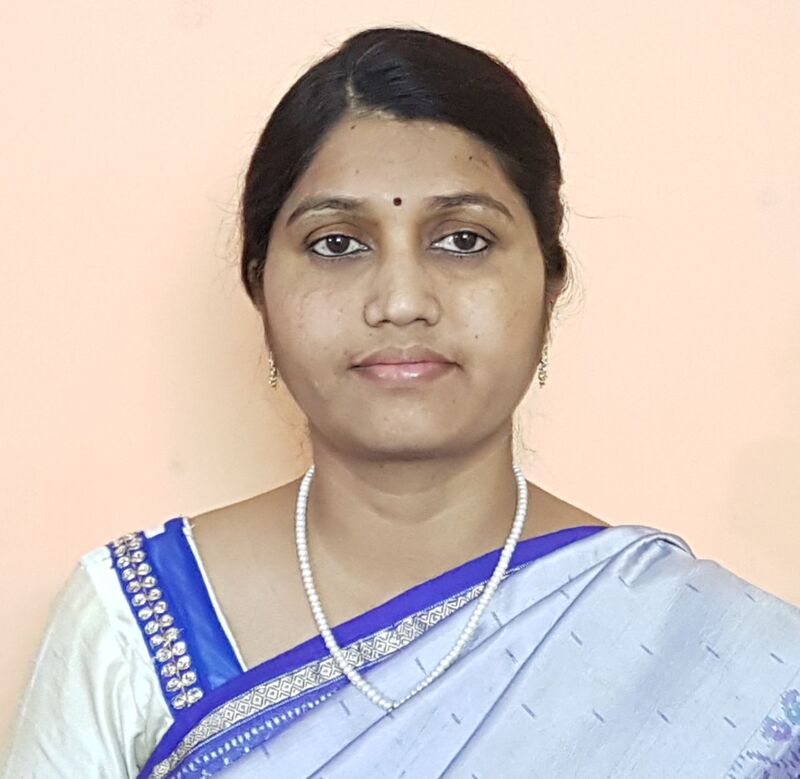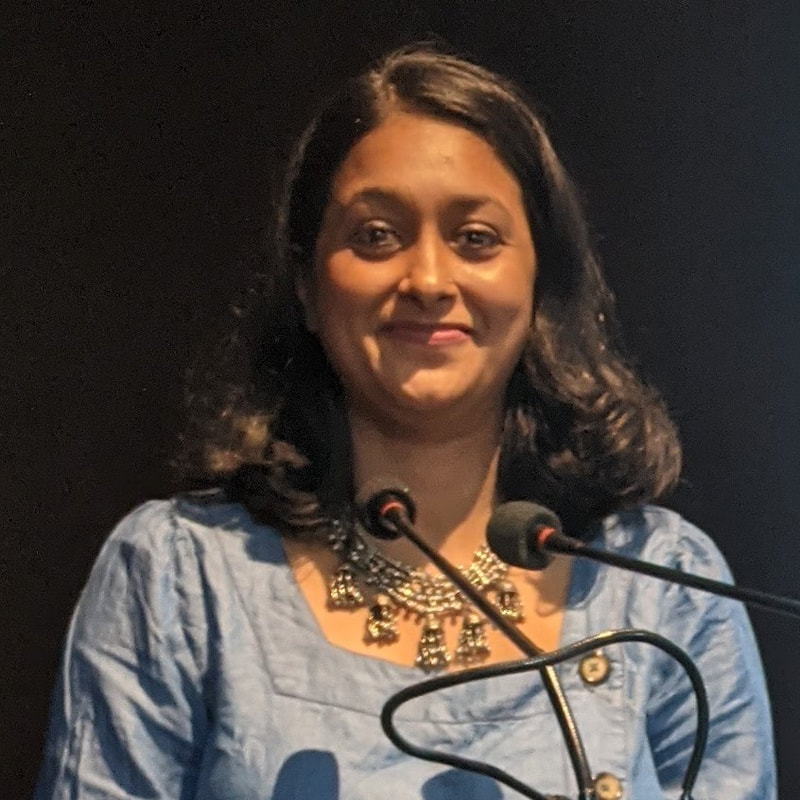- Home
- Shop
- Study Ayurveda
- Conferences
-
Past Conferences
- 61 Conference Ayurveda & Parkinson's Disease
- 60 Conference Ayurveda & Metabolic Disorders
- 59 Conference Ayurveda & Arthritis
- 58 Conference Ayurveda & Allergies
- 57 Conference Child Health Care Through Ayurveda
- 56 Conference Ayurveda for Women
- 55 Conference Ayurveda & Emotions
- 54 Conference Ayurveda & Addictions
- 53 Conference Ayurveda for a Healthy World
- 52 Conference Ayurveda & Eye Care
- 51 Conference Ayurveda & Stress Management
- 50 Conference Ayurveda & Marma Therapy
- 49 Conference Ayurveda & Aroma Therapy
- 48 Conference Ayurveda & Fertility
- 47 Conference Ayurveda for Healthy Living
- 46 Conference Ayurveda & Thyroid Care
- 45 Conference Ayurveda & Kidney Care
- 44 Conference Ayurveda & Heart Care
- 43 Conference Ayurveda & Gut Health
- 42 Conference Ayurveda & Liver Care
- 41 Conference Ayurveda & Lung Care
- 40 Conference Ayurveda & Skin Care
- 39 Conference Ayurveda & Pain Management
- 38 Conference Clinical Ayurveda
- 37 Conference Ayurveda & the Mind
- 36 Conference Ashtanga Ayurveda
- 35 Conference Ayurveda & Epigenetics
- 34 Conference: Evedence Based Ayurveda
- 33 Conference: Ayurvedic Pediatrics
- 32 Conference Ayurveda: Autoimmune & Metabolic Disorders
- 31 Conference AyurYoga for Radiant Health - Cruise
- 30 Conference Ayurveda, Yoga, Spirituality
- 29th Conference Mother & Child Healthcare
- 28 Conference Ayurveda & Panchakarma
- 27 Conference Ayurveda for All
- 26 Conference Ayurveda & Women's Health
- 25 Conference Silver Jubilee
- 24 Conference Kayachikitsa & Panchakarma
- 23 Conference Ayurveda for Health
- 22 Conference Home Remedies
- 21 Conference Ayurveda & Psychology
- 20 Conference Panchanga Veda
- 19 Conference Integrated Medicine
- 18 Conference Herbs & Minerals
- 17 Conference Food & Nutrition
- 16 Conference Shalakya Manthana
- 15 Conference Autoimmune Disorders
- 14 Conference Consciousness
- 13 Conference Energy Medicine
- 12 Conference Spirituality & Healing
- Related
About the Conference
7.0 PACE (Professional Ayurvedic Continuing Education) Credits from AAPNA (Association of Ayurvedic Professionals of North America, Inc. USA
- Ayurveda & Thyroid Care
Featured Speakers
Tentative Conference Schedule
Saturday, February 5, 2022
Conference Time: EST (Eastern Standard Time)
Conference Time: EST (Eastern Standard Time)
Time |
Topic |
Speaker |
08:00 am - 08:30 am |
Ayurveda management of Hypothyroidism |
Dr. Shripathi Acharya, BAMS, MD-Ayu, PhD-Ayu, Karnataka, India |
08:30 am - 09:00 am |
Diagnostic purview of Thyroid Disorders and their management in Ayurveda |
Dr. Rashi Sharma, BAMS, MD-Ayu, PhD-Ayu, Banaras, India |
09:00 am - 09:30 am |
An Appraisal of Ayurvedic Researches in Hypothyroidism |
Dr. Sushant Sud, BAMS, MD-Ayu, Gujarat, India |
09:30 am - 10:00 am |
Benefits of Panchakarma in Hypothyroidsm |
Dr. Vishwanath Guddadar, BAMS, Florida, USA |
10:00 pm - 10:30 am |
Case studies on autoimmune thyroid - eliminating anti thyroid antibodies using ayurvedic methods |
Dr. Smita Naram, Mumbai, India |
10:30 am - 11:00 am |
Fundamental Understanding of the Thyroid and Nutrients to Maintain Thyroid Health |
Dr. Nita Sharma Das, PhD, Haryana, India |
Sunday, February 6, 2021
Conference Time: EST (Eastern Standard Time)
Conference Time: EST (Eastern Standard Time)
Time |
Topic |
Speaker |
08:00 am - 08:30 am |
Management of Hypothyroidism through Ayurveda and Sri Lankan traditional formularies – A case study |
Dr. K. Piumi Dananga Chamari Perera, BAMS, MD-Ayu- Scholar, Colombo, Sri Lanka |
08:30 am - 09:00 am |
Hypo and Hyper thyroid and Agni |
Dr. Manohar Palakurthi, BAMS, PhD, Iowa, USA |
09:00 am - 09:30 am |
Clinical approach of Kanchanar (Bauhinia variegata) in thyroid disorder |
Dr. Naresh Kumar Garg, BAMS, MD-Ayu, Rajasthan, India |
09:30 am - 10:00 am |
Subclinical hypothyroidism in children – clinical experiences through Ayurveda |
Dr. Snehalatha Dornala, BAMS, MD-Ayu, PhD-Ayu, New Delhi, India |
10:00 pm - 10:30 am |
Scope of ayurveda in integrative thyroid care |
Dr. Sathya Dornala, BAMS, MD-Ayu, PhD-Ayu, New Delhi, India |
10:30 am - 11:00 am |
Effectiveness of Ayurvedic treatment in Hypothyroidism |
Dr. S.Kumudu Priyangani Waidyarathna, BAMS, MD-Ayu - Scholar, Colombo, Sri Lanka |
11:00 am - 11:30 am |
Yoga and medical nutrition therapy for thyroid |
Dr. Sukanya Krishna Kumar, BAMS, MD-Ayu, Karnataka, India |
Featured Speakers
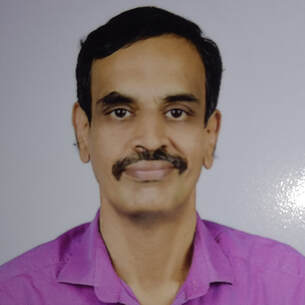
Dr. Shripathi Acharya, BAMS, MD-Ayu, PhD-Ayu, Karnataka, India - is Director Academic and HOD of PG and PhD department of Kaya chikitsa in Muniyal Institute of Ayurveda Medical Sciences Manipal India . He had guided 15 PG students so far and authored more than 150 scientific articles and 14 books on Ayurveda including Researches in Ayurveda and Updated Ayurveda. He had presented scientific presentations in USA, UK, Italy, China, Singapore, Sri Lanka, Bangladesh and Thailand. He had also presented oral presentations in webinars hosted in cities like Hong Kong, Taipei, Sidney, Melbourne, Koulalampur, Bangkok, Paris, London, Zurich, Johannesburg and Washington DC. He had received awards like Research excellence award , Hyderabad, teaching excellence award, Mumbai , Eminent educationist award, Bangalore, Lifetime achievement award, New Delhi, Arya Bhatta award , Newdelhi, Global Shanti samman 2021 award Srinagar and Dhanvantari award, USA.
Topic: Ayurveda management of Hypothyroidism
Abstract: Hypothyroidism is a disease which is due to less activity of thyroid hormones. It is characterized by symptoms like obesity, bradycardia, constipation, slow mentality, somnolence, anemia and amenorrhea. Ayurveda medicine has better role in Hypothyroidism patients. Navaka guggulu, Amrita guggulu , Lashuna capsules, daily walking, exercise and dry massage (rooksha udwartana) are effective in these patients. In this paper, role of Ayurveda management in Hypothyroidism patients is discussed in detail.
Topic: Ayurveda management of Hypothyroidism
Abstract: Hypothyroidism is a disease which is due to less activity of thyroid hormones. It is characterized by symptoms like obesity, bradycardia, constipation, slow mentality, somnolence, anemia and amenorrhea. Ayurveda medicine has better role in Hypothyroidism patients. Navaka guggulu, Amrita guggulu , Lashuna capsules, daily walking, exercise and dry massage (rooksha udwartana) are effective in these patients. In this paper, role of Ayurveda management in Hypothyroidism patients is discussed in detail.
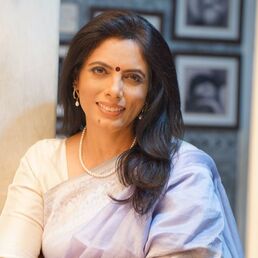
Dr. Smita Naram, Mumbai, India - Founder of the Ayushakti Group Companies and a world-renowned pulse reader and detoxification specialist and master trainer of the Practitioner. Ayushakti has helped 150,000 people worldwide in more than 108 countries. There are 150 clinics across the world. Published Research papers in peer view journals on depression, anxiety, dermatitis, Arthritis, asthma, diabetes, and infertility. Published a book “Your Health in your Hand” and 9 booklets. I have given one on one more than 200,000 consultations.
Topic: Case studies on autoimmune thyroid - eliminating anti thyroid antibodies using ayurvedic methods
Abstract: 20 clients case study on autoimmune thyroid.. Using the 3 R formula-- 90% of cases got negative anti thyroid antibodies in autoimmune thyroid. Step one remove excess Kapha, aama toxins by panchakarma detox, repair & restore thyroid function using specific diet, home remedies, yoga asana, pranayama, & herbal formula. Rebuild & renew shrunken thyroid gland using rejuvenation herbal formulas & Pichu treatment. Finally, achieving normal thyroid function without the need to take prescription medications & normal thyroid gland structure is achieved in a year's time. 90% success as per research on a group of 20 people.
Topic: Case studies on autoimmune thyroid - eliminating anti thyroid antibodies using ayurvedic methods
Abstract: 20 clients case study on autoimmune thyroid.. Using the 3 R formula-- 90% of cases got negative anti thyroid antibodies in autoimmune thyroid. Step one remove excess Kapha, aama toxins by panchakarma detox, repair & restore thyroid function using specific diet, home remedies, yoga asana, pranayama, & herbal formula. Rebuild & renew shrunken thyroid gland using rejuvenation herbal formulas & Pichu treatment. Finally, achieving normal thyroid function without the need to take prescription medications & normal thyroid gland structure is achieved in a year's time. 90% success as per research on a group of 20 people.
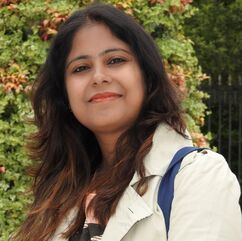
Dr. Nita Sharma Das, PhD, Haryana, India - an educator, author, and writer with an experience of more than 14 years in the Indian education and healthcare industry. I am a Member of Ph.D. Advisory Committee of Texila American University. I am an author of a course book for Mahatma Gandhi University named: Concepts of Health. I am a published author of The Herbal Remedy Book (available on amazon.com). As per academia, I am a Doctor of Naturopathy and did my Ph.D. in Alternative Medicine. I have basic graduation in pharmaceutical sciences and Post-Graduation Diploma in Hospital Administration. Herbal medicine and nutraceuticals are my specializations and area of research. I have regular publications in renowned national and international magazines for different disease profiles and treatment options, home remedies, health fitness regimes, herbal medicines, and wellbeing.
Topic: Fundamental Understanding of the Thyroid and Nutrients to Maintain Thyroid Health
Abstract: The thyroid is a vital endocrine gland. It releases a steady amount of thyroid hormones continuously into the bloodstream. Both T3 and T4 are considered as main thyroid hormones. Both of these hormones are responsible for the metabolism, growth, and development of the human body. These two hormones regulate the basal metabolic rate of the body. Nutrients obtained from the diet play a vital factor in maintaining thyroid health. There is strong evidence that nutritional deficiency, in particular caloric restriction, has an inhibitory effect on the secretion of TSH and on extrathyroidal production of T3. Research evidence suggested specific dietary requirements to support thyroid health.
Topic: Fundamental Understanding of the Thyroid and Nutrients to Maintain Thyroid Health
Abstract: The thyroid is a vital endocrine gland. It releases a steady amount of thyroid hormones continuously into the bloodstream. Both T3 and T4 are considered as main thyroid hormones. Both of these hormones are responsible for the metabolism, growth, and development of the human body. These two hormones regulate the basal metabolic rate of the body. Nutrients obtained from the diet play a vital factor in maintaining thyroid health. There is strong evidence that nutritional deficiency, in particular caloric restriction, has an inhibitory effect on the secretion of TSH and on extrathyroidal production of T3. Research evidence suggested specific dietary requirements to support thyroid health.
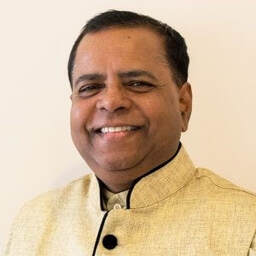
Dr. Manohar Palakurthi, BAMS, PhD, Iowa, USA - is a highly respected Ayurvedic expert in the western world and India. He has been practicing Ayurveda for 38 years, leading Ayurvedic physician, educator, and Ayurvedic curriculum consultant. Vaidya Manohar Palakurthi is a leading Maharishi AyurVeda expert – the consciousness-based approach to health – having worked directly with Maharishi for three decades. Vaidya Manohar has taught Maharishi AyurVeda courses, including Maharishi Nadi Vigyan, all over the world, and currently teaches at Maharishi International University, USA. He consults for Maharishi AyurVeda course development for physicians in the USA, Japan, and Europe, and for the development of Maharishi AyurVeda herbal products. Vaidya Palakurthi was trained by, and worked with, world experts such as Vaidya Balraj Maharishi, the world’s leading expert in Dravya Guna, Rajvaidya Brihaspati Dev Triguna, the world’s leading expert in Nadi Vigyan, and Vaidya V.M. Dwivedi, former Vice-chancellor of Jamnagar Ayurveda University, the world’s leading expert in Ayurvedic mineral and metal preparations. Vaidya Manohar Panchakarma specialist in kerala panchakarma procedures. Vaidya Manohar specialist in Ayurved Ophthalmology from the prestigious Ayur eye institute Sreedhareeyam -Kerala Vaidya Manohar specialist in marma therapy. Vaidya Manohar certified consultant in Maharishi Aroma therapy (Aurel-France).
Topic: Hypo and Hyper thyroid and Agni
Abstract: In Ayurved Thyroid is a disease to be known with the knowledge of dosha and dushya sammurchanam. Origin and expression causative factors agni all are important factors of knowledge to understand pathophysiology .Elements of pathology from ayer point of view is very essential for proper therapeutic approach to restore balance in thyroid disorder.
Topic: Hypo and Hyper thyroid and Agni
Abstract: In Ayurved Thyroid is a disease to be known with the knowledge of dosha and dushya sammurchanam. Origin and expression causative factors agni all are important factors of knowledge to understand pathophysiology .Elements of pathology from ayer point of view is very essential for proper therapeutic approach to restore balance in thyroid disorder.
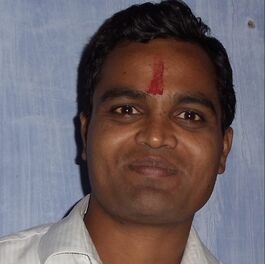
Dr. Naresh Kumar Garg, BAMS, MD-Ayu, Rajasthan, India - working as professor at PG Deptt of Dravyaguna in Sriganga Nagar College of Ayurvedic science & hospital attached to Tantia University, sirganga Nagar. I have done my BAMS from National Institute of Ayurveda, Jaipur and done PG degree from MMM Govt. Ayurveda College Udaipur, Rajasthan, India
Topic: Clinical approach of Kanchanar (Bauhinia variegata) in thyroid disorder
Abstract: The thyroid disorders are mostly co-related to the conditions gala ganda, ganda maala of Ayurveda. However, the two diseases majorly relate to nodular outgrowths of the thyroid gland which can be compared to goiter and its types. Some of the plant drugs like Kanchanar which are used in treatment of thyroid dysfunction and which have a direct action on the thyroid gland.
Topic: Clinical approach of Kanchanar (Bauhinia variegata) in thyroid disorder
Abstract: The thyroid disorders are mostly co-related to the conditions gala ganda, ganda maala of Ayurveda. However, the two diseases majorly relate to nodular outgrowths of the thyroid gland which can be compared to goiter and its types. Some of the plant drugs like Kanchanar which are used in treatment of thyroid dysfunction and which have a direct action on the thyroid gland.
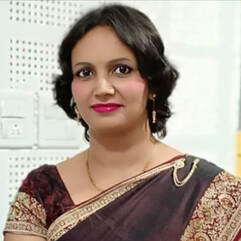
Dr. Rashi Sharma, BAMS, MD-Ayu, PhD-Ayu, Banaras, India - Associate Professor Department of Kriya Sharir faculty of Ayurveda IMS BHU Varanasi Uttar Pradesh India. I have been participating as speaker in International and National scientific conferences and seminars. I have published several research papers in renowned peer reviewed Journals. I have authored two Ayurveda books based on Ayurveda curriculum for welfare of graduate and post graduate students.
Topic: Diagnostic purview of Thyroid Disorders and their management in Ayurveda
Abstract: Thyroid gland is one of the most important gland in our body. It is located at root of neck in front of trachea. Thyroid gland secrets T3, T4 and calcitonin hormones. Secretions of the thyroid hormones are controlled by neuronal and hormonal factors. Under secretion and over secretions of the thyroid hormones lead to several health diseases in the body. Ayurveda suggest the best possible ways to fight against the thyroid diseases.
Topic: Diagnostic purview of Thyroid Disorders and their management in Ayurveda
Abstract: Thyroid gland is one of the most important gland in our body. It is located at root of neck in front of trachea. Thyroid gland secrets T3, T4 and calcitonin hormones. Secretions of the thyroid hormones are controlled by neuronal and hormonal factors. Under secretion and over secretions of the thyroid hormones lead to several health diseases in the body. Ayurveda suggest the best possible ways to fight against the thyroid diseases.
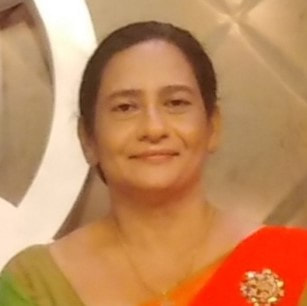
Dr. S.Kumudu Priyangani Waidyarathna, BAMS, MD-Ayu - Scholar, Colombo, Sri Lanka - presently working as a senior medical officer, ayurveda teaching hospital, Borella, Colombo, and also MD scholar in Kaya Chikitsa department, IIM, University of Colombo, Sri Lanka. BAMS, PG(Dip) Ayurveda, DDAMS(Hons) University of Colombo, Sri Lanka, Acupuncture (Korea), MD scholar in Ayurveda Kayachikitsa and Board certification, Postgraduate Institute of Indigenous Medicine , university of Colombo, Senior Medical officer, National Ayurveda Teaching Hospital, Borella. Visiting lecturer in Institute of National Social Development, Practicing and Teaching Ayurveda since 2001., Licensed Yoga Therapist, Certified Hindi. Participation and presentation in International and National Seminars/Conference/Symposium, publication articles for International and National journals, Awarded for "VAIDYA KEERTHI" by Samasta Lanka Ayurveda Vidya Sammelanaya.
Topic: Effectiveness of Ayurvedic treatment in Hypothyroidism
Abstract: Thyroid disease is one of the endocrine disorder in the world. Hypothyroidism can leads to insufficient synthesis of thyroid hormones. Prevalence of hypothyroidism in the developed world in about 4.6%. Thyroid dysfunction more prevalence among the females in Sri-Lanka. In Ayurveda description of Galaganda and Gandamala have been mentioned in different Samhitas. The symptoms of hypothyroidism and Galaganda are vaguely similar. A 43 years unmarried female person attended to the OPD clinic of National Ayurveda Teaching Hospital Borella Sri-Lanka with chief complain of weight gain, loss of hair, hoarseness of voice, irregular menstruation and body weakness since about 11months. Examination of the patient by Trivida Pareeksha with including proper history taking. She had no significant past history or family history of diabetes, hypertension or any other complicated problems. Then patient was done for investigations of FBC, FBS, LP, T3, T4 and TSH levels. In present study has been treated combination of Varunadi decoction, Kanchanara guggulu with Tripala Choorna for 3 months and Nasya with Anutaila for 7 days. After completion of the treatment patient showed the reduction of TSH level and normal limits of T3 and T4 .
Topic: Effectiveness of Ayurvedic treatment in Hypothyroidism
Abstract: Thyroid disease is one of the endocrine disorder in the world. Hypothyroidism can leads to insufficient synthesis of thyroid hormones. Prevalence of hypothyroidism in the developed world in about 4.6%. Thyroid dysfunction more prevalence among the females in Sri-Lanka. In Ayurveda description of Galaganda and Gandamala have been mentioned in different Samhitas. The symptoms of hypothyroidism and Galaganda are vaguely similar. A 43 years unmarried female person attended to the OPD clinic of National Ayurveda Teaching Hospital Borella Sri-Lanka with chief complain of weight gain, loss of hair, hoarseness of voice, irregular menstruation and body weakness since about 11months. Examination of the patient by Trivida Pareeksha with including proper history taking. She had no significant past history or family history of diabetes, hypertension or any other complicated problems. Then patient was done for investigations of FBC, FBS, LP, T3, T4 and TSH levels. In present study has been treated combination of Varunadi decoction, Kanchanara guggulu with Tripala Choorna for 3 months and Nasya with Anutaila for 7 days. After completion of the treatment patient showed the reduction of TSH level and normal limits of T3 and T4 .
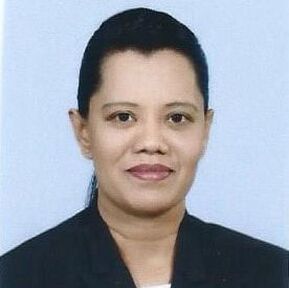
Dr. K. Piumi Dananga Chamari Perera, BAMS, MD-Ayu- Scholar, Colombo, Sri Lanka - working as a lecturer in Department of Cikitsa, Faculty of Indigenous Medicine, Gampaha Wickramarachchi University of Indigenous Medicine, Sri Lanka. I have completed Bachelor of Ayurveda Medicine and Surgery (University of Kelaniya) in 2008 and Master of Science in Kaya Chikitsa (University of Kelaniya) in 2016. Currently I am engaging with my MD studies at Postgraduate Institute of Indigenous Medicine, University of Colombo, Sri Lanka. I have participated lots of local and international workshops, seminars and conferences. Published abstracts and full papers from 2013 onwards in local and international forums.
Topic: Management of Hypothyroidism through Ayurveda and Sri Lankan traditional formularies – A case study
Abstract: Thyroid gland is an endocrine organ secretes hormones that regulate vital body functions. It produces two main hormones, Triiodothyronine (T3) and Thyroxine (T4). This production is controlled by negative feedback mechanism of Hypothalamus and Pituitary. Hyperthyroidism, Hypothyroidism, Thyroditis and abnormal thyroid growth (Galaganda) are main diseases in the thyroid gland. Ayurveda and Sri Lankan traditional texts emphasize thyroid diseases with external and internal treatments. Within this background a 37 years old female patient attended to the OPD at National Ayurveda Teaching Hospital – Sri Lanka complained of fatigue, excessive hair fall with thinning hair, constipation, hoarseness voice and abnormal neck enlargement. Through Ayurveda and biochemical parameters the condition was diagnosed as hypothyroidism. Followed shodhana and kapha vata shaman treatments. After two months of treatments evaluated clinical signs, symptoms and biochemical parameters. It showed significant improvement. Finally concluded that external and internal Ayurveda and traditional treatments effective in the management of hypothyroidism.
Topic: Management of Hypothyroidism through Ayurveda and Sri Lankan traditional formularies – A case study
Abstract: Thyroid gland is an endocrine organ secretes hormones that regulate vital body functions. It produces two main hormones, Triiodothyronine (T3) and Thyroxine (T4). This production is controlled by negative feedback mechanism of Hypothalamus and Pituitary. Hyperthyroidism, Hypothyroidism, Thyroditis and abnormal thyroid growth (Galaganda) are main diseases in the thyroid gland. Ayurveda and Sri Lankan traditional texts emphasize thyroid diseases with external and internal treatments. Within this background a 37 years old female patient attended to the OPD at National Ayurveda Teaching Hospital – Sri Lanka complained of fatigue, excessive hair fall with thinning hair, constipation, hoarseness voice and abnormal neck enlargement. Through Ayurveda and biochemical parameters the condition was diagnosed as hypothyroidism. Followed shodhana and kapha vata shaman treatments. After two months of treatments evaluated clinical signs, symptoms and biochemical parameters. It showed significant improvement. Finally concluded that external and internal Ayurveda and traditional treatments effective in the management of hypothyroidism.
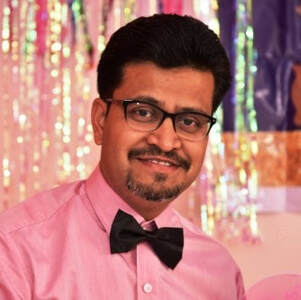
Dr. Sushant Sud, BAMS, MD-Ayu, Gujarat, India - Vaidya. Sushant Sud B.A.M.S (GAU), M.D (Ayu) Rasashastra (RGUHS), DHM (NIHFW) FRCP (UK) CHSE (IIPH) Completed his Graduation from Shri Gulabkunverba Ayurved Mahavidyalaya-Gujarat Ayurved University, Jamnagar & Post Graduate in the subject of Rasashastra from SDM College of Ayurved, Udupi-Rajeev Gandhi University of Health Sciences, Bangalore. He did his fellowship in Multidisciplinary approaches in Osteoarthritis management from the Federation of Royal College of Physicians of United Kingdom. He is a Diploma holder in Hospital Management from the National Institute of Health & Family Welfare, New Delhi and a certified Health safety consultant from the Indian Institute of Public Health Gandhinagar, Gujarat. Presently working as Head & Asso. Professor in the Department of Agad Tantra Vyavahar Ayurved (Toxicology and Jurisprudence) at Institute of Teaching and Research in Ayurved, Jamnagar, having Professional experience 10 years in the subject of Agad Tantra. He is working as a Co-Principle investigator in 2 projects funded by the Ministry of AYUSH, GOI, New Delhi. He has been a Resource person/panellist in many International seminars-conferences and webinars. He has appeared as a Guest speaker in various talks for DCC Sikka, TCL Mithapur, Essar/Nayara Oil Refinery, Maharishi Patanjali Institute of Yoga and Naturopathy Education and Research, Sashastra Seema Bala, KD Ambani Vidyamandir Reliance, Lions Club, Rotary Club, Dhootpapeshwar Pharmaceuticals etc, related to Ayurved and Lifestyle related disorders. He has published more than 40 papers in different peer-reviewed international journals and conference proceedings. Around 5 articles were published in peer-reviewed international magazines. He is the author of 3 books on Ayurved. More than 20 presentations were done at international and national levels seminars/conferences. He is a recipient of the Charak Award as Excellence in Ayurvedic Teaching by AAPNA (Association of Ayurvedic Professionals of North America, Inc.), USA. Felicitated by the Lions Club of Jamnagar (East) for the Ayurvedic health services and amenities towards the society. Felicitated with Bharat Vikas Award for the Loyalty, Diligence & Outstanding Performance in the field of Ayurveda Aushadha Nirmaan Shastra in the National Seminar on “Diversity of Cultural & Environment” in Bhubaneswar on the occasion of “Citizen’s Day". He is working as Vice President for Gujarat (Saurashtra) Association of Teachers of Ayurved, Nominated as Gujarat State Director for AAPNA (Association of Ayurvedic Professionals of North America, Inc.), USA. He is an Editorial Member and Peer Reviewer of many Ayurvedic International Peer review Journals.
Topic: An Appraisal of Ayurvedic Researches in Hypothyroidism
Abstract: The deskbound and inactive lifestyle and stress filled contemporary era has led to alterations in the activities of neuro endocrine system causing newer health challenges like thyroid disorder. Hypothyroidism is a frequently encountered health issue in day to day life and has continued to pose major wellbeing challenges in both developing and developed world. Hypothyroidism also known as underactive thyroid is a state where the thyroid gland does not create enough thyroid hormone. Thyroid hormone regulates the way in which the body uses the energy-metabolism, and without enough of this hormone many of the body’s functions slow down. In India, 48 million people are suffering from thyroid disorders; out of which hypothyroidism is most common with prevalence of 5.9%. The only modern treatment available is lifelong use of Hormonal therapy (Levothyroxine sodium). In present era, people are disguised with hormonal therapy as it makes them slave of hormones. In this direction, to evaluate the actual efficacy of different Ayurvedic treatment modalities; few works have been carried out at Institute of Teaching and Research in Ayurved, Jamnagar. In current attempt, it has been planned to review and evaluate all such works done on Hypothyroidism.
Topic: An Appraisal of Ayurvedic Researches in Hypothyroidism
Abstract: The deskbound and inactive lifestyle and stress filled contemporary era has led to alterations in the activities of neuro endocrine system causing newer health challenges like thyroid disorder. Hypothyroidism is a frequently encountered health issue in day to day life and has continued to pose major wellbeing challenges in both developing and developed world. Hypothyroidism also known as underactive thyroid is a state where the thyroid gland does not create enough thyroid hormone. Thyroid hormone regulates the way in which the body uses the energy-metabolism, and without enough of this hormone many of the body’s functions slow down. In India, 48 million people are suffering from thyroid disorders; out of which hypothyroidism is most common with prevalence of 5.9%. The only modern treatment available is lifelong use of Hormonal therapy (Levothyroxine sodium). In present era, people are disguised with hormonal therapy as it makes them slave of hormones. In this direction, to evaluate the actual efficacy of different Ayurvedic treatment modalities; few works have been carried out at Institute of Teaching and Research in Ayurved, Jamnagar. In current attempt, it has been planned to review and evaluate all such works done on Hypothyroidism.
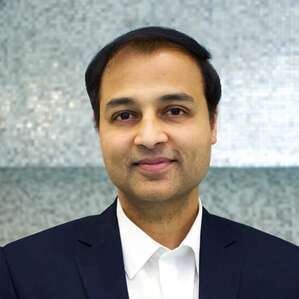
Dr. Vishwanath Guddadar, BAMS, Florida, USA - grew up in Pune, India which is hub of traditional Ayurvedic gurukul teachings, following the principles of Ayurveda as part of his culture. He has dedicated his career over the past 1 ½ decades to the science of Ayurveda. Vaidya Vishwanath received his bachelor’s degree in Ayurvedic medicines and surgery after completing five and a half years of training from Bangalore University. He is specialist in panchakarma (Physical and Mental Purification Therapy) and preventive cardiology. He has completed his post graduate diploma in panchakarma and preventive cardiology from Pune, India. He is also certified spine health specialist from Maharashtra university of health sciences, Nashik, India. Vaidya Vishwanath completed his yoga and meditation teacher training program from Swami Vivekananda Yoga and Anusandhana Samsthana. He has worked with Dr Deepak Chopra, one of the world’s foremost authorities on mind-body balance, holistic harmony, and physical wellness. He is dedicated to spreading the ancient wisdom of this science of life to the world keeping it truly traditional and authentic. His main fields of interest are Mind – Body medicine. At present I am working with Kottakkal Ayurveda USA as a director of education.
Topic: Benefits of Panchakarma in Hypo Thyroidsm
Abstract: Hypothyroidism is an endocrinal disorder which occurs due to hormonal imbalances with the body. Thyroid hormones are not just controlled by thyroid gland, but its master is Pituitary gland. These hormones have direct impact on metabolic rate of the body. Panchakarma (Body-Mind purification therapy) is powerful tool to balance the metabolic rate of the body. We will understand how panchakarma therapies helpful in hypothyroidism condition.
Topic: Benefits of Panchakarma in Hypo Thyroidsm
Abstract: Hypothyroidism is an endocrinal disorder which occurs due to hormonal imbalances with the body. Thyroid hormones are not just controlled by thyroid gland, but its master is Pituitary gland. These hormones have direct impact on metabolic rate of the body. Panchakarma (Body-Mind purification therapy) is powerful tool to balance the metabolic rate of the body. We will understand how panchakarma therapies helpful in hypothyroidism condition.
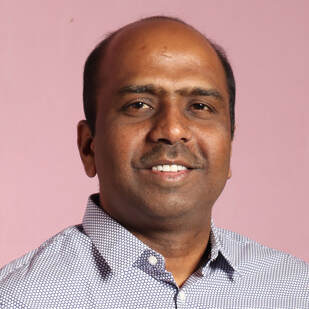
Dr. Sathya Dornala, BAMS, MD-Ayu, PhD-Ayu, New Delhi, India - is presently working as “Panchakarma Specialist” at Swami Vivekanand Ayurvedic Panchakarma Hospital, Dilshad Garden, Delhi – 95. He holds many qualifications such as B.A.M.S., M.D (Ayurveda-Kaya Chikitsa))., M.S (Psychotherapy & Counselling)., Ph.D (Panchakarma)., PG Diploma in Hospital & Healthcare Management (IGNOU)., Vaidya-Scientist Fellow (ITD-HST, Bengaluru).,Certificate in Health Research Fundamentals (CHRF-ICMR)., Online certification in “Writing in the Sciences” & “Statistics in Medicine” from Stanford University through Coursera Inc. He is a recipient of Dhanwantari Award (2018) for Excellence in Ayurvedic Practice by Association of Ayurvedic Professionals of North America (AAPNA); Pranacharya Award (2017) by Sri Indraprasthiya Vaidya Sabha – Delhi chapter of All India Ayurvedic Congress, New Delhi; Dhanwantari Award (2016) for Excellence in Ayurvedic Practice by AAPNA; Eminent Speaker award (2016) from Integrated Medical Association – AYUS, Delhi; “Honorary Professor” title from Maharishi European Research University (MERU), Switzerland (2015); International Aryabhatta Award (2009) for excellence in Ayurvedic Research by AAPNA & Best International White Paper Award (2009) from TAFSA (The Ayurvedic Foundation of South Africa). He is a Resource person for Certificate course on “Health promotion through Ayurveda & Yoga” being jointly conducted by the Ministry of AYUSH and Indian Red Cross Society (IRCS), New Delhi. “Resource person” for delivering Lectures on Live Personal Contact Programme (PCP) through Web radio talks (MuktaVidyavani) of National Institute of Open Schooling (NIOS) under Ministry of HRD for the course learners of Certificate course in Ayurvedic Therapy. “Programme architect & Mentor” for RECAP program (REfresher Course for Ayurvedic Practitioners) being conducted by Academy of Ayurveda studies Janakpuri New Delhi Authored 5 books, 50 scientific articles, delivered many lectures at various national and international platforms. Editorial Advisory Board member, Editorial Board member and Reviewer of Many Ayurvedic journals. Member/Resource person of many Professional bodies, Scientific committees, Panel Discussions, Scientific workshops etc.
Topic: Scope of ayurveda in integrative thyroid care
Abstract: Endocrine issues are one of the major healthcare issues in society, gradually becoming a public health problem. Thyroid malfunction is the most common problem. The thyroid gland produces hormones that play a key role in many different systems throughout our body. The thyroid gland controls metabolism with a few specific hormones — T4 (thyroxine, contains four iodide atoms) and T3 (triiodothyronine, contains three iodide atoms). These two hormones tell the body’s cells how much energy to use. When the thyroid works properly, it will maintain the right amount of hormones to keep our metabolism working at the right rate. When the thyroid makes either too much or too little of these important hormones, it’s called thyroid disease. There are several different types of thyroid disease, including hyperthyroidism, hypothyroidism, thyroiditis and Hashimoto’s thyroiditis etc., In most of cases, people need lifetime hormone replacement therapy. The integrative approach in these cases gives benefits such as hormone dose minimization, shortening of the duration of the therapy from lifetime medication, managing subclinical cases without the addition of hormone therapy etc., Ayurveda offers many solutions in this direction. The first and foremost recommendation of Ayurveda is Nidana parivarjana i.e., avoidance of exposure to endocrine disruptors either in foods or cosmetics or something else. (or) recurrent /frequent use of emergency contraceptive pills or any other hormone pills. Daily pratimarsha nasya is strongly recommended for thyroid health. Shodhana karma like Vamana and virechana are found to be beneficial for euthyroid. A thyromimetic actions drug such as Kanchanara is renowned for its effect in thyroid health.
Topic: Scope of ayurveda in integrative thyroid care
Abstract: Endocrine issues are one of the major healthcare issues in society, gradually becoming a public health problem. Thyroid malfunction is the most common problem. The thyroid gland produces hormones that play a key role in many different systems throughout our body. The thyroid gland controls metabolism with a few specific hormones — T4 (thyroxine, contains four iodide atoms) and T3 (triiodothyronine, contains three iodide atoms). These two hormones tell the body’s cells how much energy to use. When the thyroid works properly, it will maintain the right amount of hormones to keep our metabolism working at the right rate. When the thyroid makes either too much or too little of these important hormones, it’s called thyroid disease. There are several different types of thyroid disease, including hyperthyroidism, hypothyroidism, thyroiditis and Hashimoto’s thyroiditis etc., In most of cases, people need lifetime hormone replacement therapy. The integrative approach in these cases gives benefits such as hormone dose minimization, shortening of the duration of the therapy from lifetime medication, managing subclinical cases without the addition of hormone therapy etc., Ayurveda offers many solutions in this direction. The first and foremost recommendation of Ayurveda is Nidana parivarjana i.e., avoidance of exposure to endocrine disruptors either in foods or cosmetics or something else. (or) recurrent /frequent use of emergency contraceptive pills or any other hormone pills. Daily pratimarsha nasya is strongly recommended for thyroid health. Shodhana karma like Vamana and virechana are found to be beneficial for euthyroid. A thyromimetic actions drug such as Kanchanara is renowned for its effect in thyroid health.
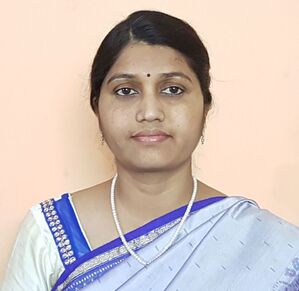
Dr. Snehalatha Dornala, BAMS, MD-Ayu, PhD-Ayu, New Delhi, India - is currently working as professor and head of department at VYDS Ayurved Mahavidyalay khurja, UP completed her PG and Ph D from National institute of Ayurveda Jaipur and also did her post graduate diploma in child rights law from National law school of india University benguluru. Received Ayurvisharada award, Best paper awards and also She has received Kashyapa Award for Excellence in Ayurvedic teaching in by AAPNA in 2015. She is instrumental in developing course healthy happy mother and baby programme for Maharishi european research institute Netherlands.She also developed vocational and para medical course cirricullum for National institute of open schooling, ministry of HRD. she is visiting professor at MERU switzerland & USA. She authored 4 books. She is having 18 yrs of clinical experience in dealing with different health issues related to children. She is guide for post graduate students. Her area of specialization are preventive medicine, Nutrition and children.
Topic: Subclinical hypothyroidism in children – clinical experiences through Ayurveda
Abstract: Subclinical hypothyroidism (SH) is defined as serum TSH levels higher than 10mIU/L in the presence of normal T4 levels. It is often benign and become quite common problem in children. Though current data indicates that children with mild SH have normal linear growth and intellectual outcome; close progressive monitoring is essential in order to avoid childhood onset of adult diseases. The major concern of SH in children is to identify the causative factors responsible for irregular synthesis of Thyroid hormone. Children are normally presenting with Fluctuating doshic equilibrium, immatured framework of dhatu, Immatured functioning of agni, not fully established gut microbiome & immune system, high demand for crucial growth & development. Their basal metabolic rate is higher than adults; Exposure to unnatural dietary and lifestyle habits in childhood will imbalance their AGNI leading to subclinical hypothyroidism. The aim of this paper is to present my clinical observations and experiences of case series of SH by Ayurvedic therapy.
Topic: Subclinical hypothyroidism in children – clinical experiences through Ayurveda
Abstract: Subclinical hypothyroidism (SH) is defined as serum TSH levels higher than 10mIU/L in the presence of normal T4 levels. It is often benign and become quite common problem in children. Though current data indicates that children with mild SH have normal linear growth and intellectual outcome; close progressive monitoring is essential in order to avoid childhood onset of adult diseases. The major concern of SH in children is to identify the causative factors responsible for irregular synthesis of Thyroid hormone. Children are normally presenting with Fluctuating doshic equilibrium, immatured framework of dhatu, Immatured functioning of agni, not fully established gut microbiome & immune system, high demand for crucial growth & development. Their basal metabolic rate is higher than adults; Exposure to unnatural dietary and lifestyle habits in childhood will imbalance their AGNI leading to subclinical hypothyroidism. The aim of this paper is to present my clinical observations and experiences of case series of SH by Ayurvedic therapy.
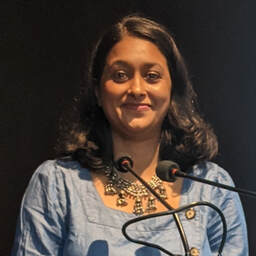
Dr. Sukanya Krishna Kumar, BAMS, MD-Ayu, Karnataka, India - working as Asst professor in dept of Swasthavritta at Karnataka Ayurveda medical college,mangalore.i have done my BAMS from Amrita Vishwa Vidya Peetham ,Kerala. I have completed MD in Swasthavritta subject from SDM Ayurveda college, Udupi. I had been invited as guest speaker at various institutions in significant occasions. I have delivered sessions at Amrita Vishwa Vidya peetham, PNNM Ayurveda college, Pampa resolute, St Aloyscious college, Dharma Ayurveda college etc . I had taken part of training of teachers powered by NCISM and ministry of Ayush. I have attained my training in disaster management and preparedness. I have also trained in counselling and psycho therapy. I have trained in cosmetology and aesthetics. I have good clinical practice experience at Kottakkal Arya Vaidya shala and Patanjali clinic. I have presented so many papers in national international conferences.
Topic: Yoga and medical nutrition therapy for thyroid
Abstract: Thyroid is now became a prominent lifestyle disease in the world. yoga and nutrition always synergistically pay the par excellence in clinical care of thyroid. yoga therapy includes Yogasanas, pranayama and dhyana to design the protocol for thyroid treatment .nutrition also have tremendous scope to deal the thyroid problems. According to studies, yoga therapy is successful to make the changes in hormone secretion. yoga practices decreased serum TSH levels. daily yoga practices have a positive impact on mental status and thought process this substantially helps the victims from depression. yoga therapy is more appealing than pharmacological way as yoga empowers the body for natural healing which is not toxic .along with yogic interventions, nutrition also have major role. dietary advice and avoidance of excessive use of goitrogens in diet are part of nutritional safety. goitrogens including cruciferous vegetables and soy products have shown been to inhibit thyroid hormone synthesis in several ways and iodine absorption inhibition. micronutrients intake determines thyroid physiology. this session will throw the light on medical nutrition therapy and yogic interventions in thyroid treatment
Topic: Yoga and medical nutrition therapy for thyroid
Abstract: Thyroid is now became a prominent lifestyle disease in the world. yoga and nutrition always synergistically pay the par excellence in clinical care of thyroid. yoga therapy includes Yogasanas, pranayama and dhyana to design the protocol for thyroid treatment .nutrition also have tremendous scope to deal the thyroid problems. According to studies, yoga therapy is successful to make the changes in hormone secretion. yoga practices decreased serum TSH levels. daily yoga practices have a positive impact on mental status and thought process this substantially helps the victims from depression. yoga therapy is more appealing than pharmacological way as yoga empowers the body for natural healing which is not toxic .along with yogic interventions, nutrition also have major role. dietary advice and avoidance of excessive use of goitrogens in diet are part of nutritional safety. goitrogens including cruciferous vegetables and soy products have shown been to inhibit thyroid hormone synthesis in several ways and iodine absorption inhibition. micronutrients intake determines thyroid physiology. this session will throw the light on medical nutrition therapy and yogic interventions in thyroid treatment
Privacy Policy |
© COPYRIGHT 2018. ALL RIGHTS RESERVED.
|
Informed Consent & Disclaimer: Information on this web site is provided for informational and educational purposes only and is not intended as a substitute for the advice provided by your physician or other healthcare professional or any information contained on or in any product label or packaging. Do not use the information on this web site for diagnosing or treating a health problem or disease, or prescribing medication or other treatment. Always speak with your physician or other healthcare professional regarding any health concerns and before taking any medication or nutritional, herbal or homeopathic supplement, or using any treatment for a health problem. Information and statements regarding dietary supplements have not been evaluated by the Food and Drug Administration and are not intended to diagnose, treat, cure, or prevent any disease.
- Home
- Shop
- Study Ayurveda
- Conferences
-
Past Conferences
- 61 Conference Ayurveda & Parkinson's Disease
- 60 Conference Ayurveda & Metabolic Disorders
- 59 Conference Ayurveda & Arthritis
- 58 Conference Ayurveda & Allergies
- 57 Conference Child Health Care Through Ayurveda
- 56 Conference Ayurveda for Women
- 55 Conference Ayurveda & Emotions
- 54 Conference Ayurveda & Addictions
- 53 Conference Ayurveda for a Healthy World
- 52 Conference Ayurveda & Eye Care
- 51 Conference Ayurveda & Stress Management
- 50 Conference Ayurveda & Marma Therapy
- 49 Conference Ayurveda & Aroma Therapy
- 48 Conference Ayurveda & Fertility
- 47 Conference Ayurveda for Healthy Living
- 46 Conference Ayurveda & Thyroid Care
- 45 Conference Ayurveda & Kidney Care
- 44 Conference Ayurveda & Heart Care
- 43 Conference Ayurveda & Gut Health
- 42 Conference Ayurveda & Liver Care
- 41 Conference Ayurveda & Lung Care
- 40 Conference Ayurveda & Skin Care
- 39 Conference Ayurveda & Pain Management
- 38 Conference Clinical Ayurveda
- 37 Conference Ayurveda & the Mind
- 36 Conference Ashtanga Ayurveda
- 35 Conference Ayurveda & Epigenetics
- 34 Conference: Evedence Based Ayurveda
- 33 Conference: Ayurvedic Pediatrics
- 32 Conference Ayurveda: Autoimmune & Metabolic Disorders
- 31 Conference AyurYoga for Radiant Health - Cruise
- 30 Conference Ayurveda, Yoga, Spirituality
- 29th Conference Mother & Child Healthcare
- 28 Conference Ayurveda & Panchakarma
- 27 Conference Ayurveda for All
- 26 Conference Ayurveda & Women's Health
- 25 Conference Silver Jubilee
- 24 Conference Kayachikitsa & Panchakarma
- 23 Conference Ayurveda for Health
- 22 Conference Home Remedies
- 21 Conference Ayurveda & Psychology
- 20 Conference Panchanga Veda
- 19 Conference Integrated Medicine
- 18 Conference Herbs & Minerals
- 17 Conference Food & Nutrition
- 16 Conference Shalakya Manthana
- 15 Conference Autoimmune Disorders
- 14 Conference Consciousness
- 13 Conference Energy Medicine
- 12 Conference Spirituality & Healing
- Related

